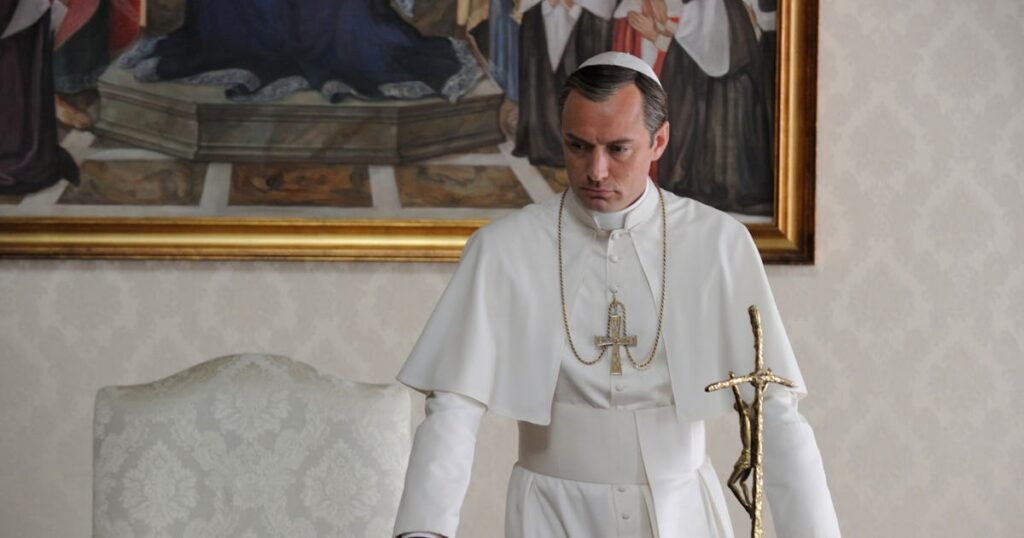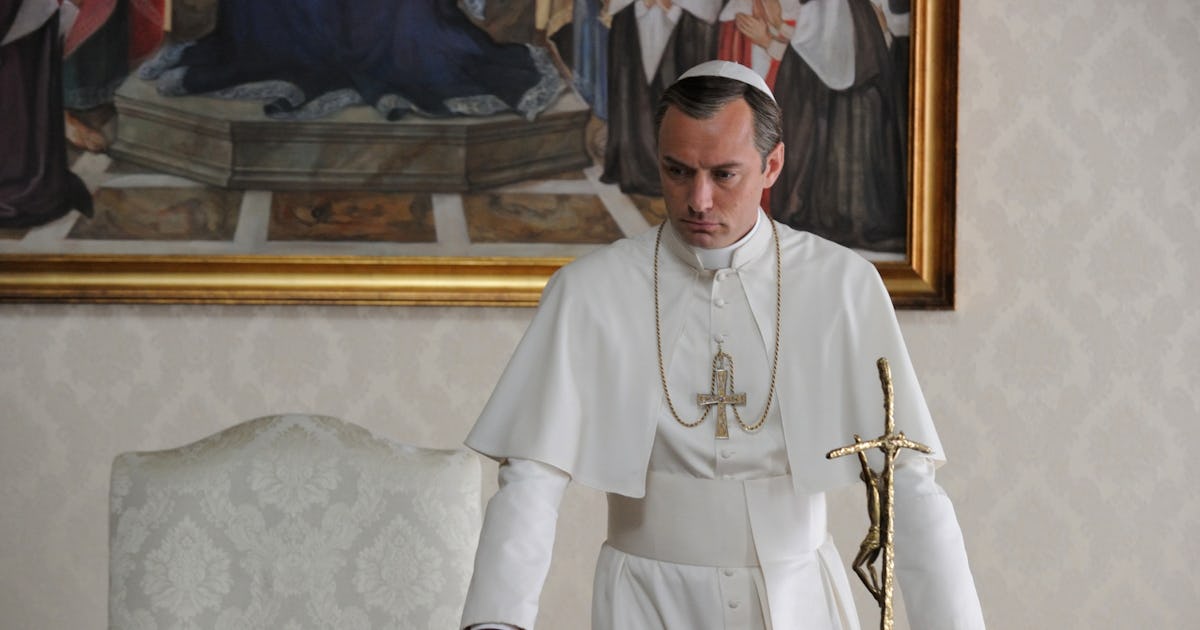
Has There Ever Been a Pope from America? Unveiling the Truth
Have you ever wondered, “has there ever been a pope from america”? It’s a question that sparks curiosity about the intersection of faith, nationality, and the highest office in the Catholic Church. This comprehensive guide answers that question definitively, explores the historical context, and delves into the factors that have shaped the papacy’s composition. We aim to provide not just a simple answer, but a deep understanding of the nuances behind this intriguing question. Prepare to uncover the complexities of papal history and learn why the answer is more fascinating than you might expect. This article is designed to be the most authoritative and trustworthy resource on this topic, drawing on historical records and expert analysis to provide a clear and insightful perspective.
The Short Answer: No, But the Story is Richer Than You Think
To put it plainly, no, there has never been a Pope who was born in America (either the United States or any other country in the Americas). However, this simple answer belies a much more complex and interesting history. The papacy has been dominated by European figures for centuries, and understanding why requires a look at the historical, cultural, and political forces that have shaped the Catholic Church. It is important to note that while there has never been a Pope born in America, that does not mean that Americans have not played a significant role in the Catholic Church.
The Historical Context: Why Europe Dominated the Papacy
For much of its history, the Catholic Church has been centered in Europe. Rome, the heart of the Roman Empire, became the seat of the papacy, and European cardinals have historically held significant influence in the selection of Popes. Several factors contributed to this dominance:
* **Early Church History:** The Church’s roots are deeply intertwined with European history, dating back to the Roman Empire. The early Popes were primarily from Rome or surrounding regions.
* **Political Power:** For centuries, the papacy wielded considerable political power in Europe, influencing kings, emperors, and the course of nations. This power base naturally led to a European-centric focus.
* **Cultural Influence:** European culture, particularly Italian culture, has profoundly shaped the traditions and practices of the Catholic Church. This cultural influence extended to the selection of Popes.
* **Geographic Proximity:** Cardinals, who elect the Pope, have historically been primarily European due to the Church’s central administration being in Rome. Travel and communication limitations further reinforced this geographic concentration of power.
Understanding these factors provides context for why the papacy has remained predominantly European.
The Role of Cardinals in Papal Elections
The College of Cardinals is responsible for electing the Pope. The composition of the College of Cardinals has historically favored European clergy. This is because the Pope traditionally appoints cardinals, and Popes have often chosen individuals from regions where the Church has a strong presence, which, for a long time, meant Europe. While the trend is shifting towards a more global representation, European cardinals still hold a significant proportion of the voting power.
American Influence on the Catholic Church
While no American has held the papacy, the United States has had a substantial and growing influence on the Catholic Church. This influence manifests in several ways:
* **Growing Catholic Population:** The Catholic Church in the United States has grown significantly, becoming one of the largest denominations in the country. This growth has given American Catholics a more prominent voice within the Church.
* **Financial Contributions:** American Catholics contribute significantly to the Church’s global finances, supporting missions, charities, and other initiatives worldwide.
* **Theological Contributions:** American theologians and scholars have made important contributions to Catholic thought, addressing contemporary issues and shaping theological discourse.
* **Social Justice Advocacy:** American Catholics have been active in promoting social justice causes, advocating for the poor, the marginalized, and the environment.
Notable American Cardinals
Several American cardinals have been influential figures in the Catholic Church. Cardinals like Francis Spellman, James Gibbons, and Bernard Law (despite his controversial legacy) have played significant roles in shaping the Church’s policies and addressing social issues. These cardinals, while not Popes, have held positions of considerable authority and influence within the Church hierarchy.
The Process of Papal Selection: Conclave Explained
The selection of a new Pope is a complex and secretive process. Here’s a breakdown:
1. **Death or Resignation:** The process begins with the death or resignation of the reigning Pope.
2. **Interregnum:** A period of mourning and preparation follows, during which the College of Cardinals governs the Church.
3. **Conclave:** The cardinals gather in the Sistine Chapel for the conclave, a locked meeting where they deliberate and vote for a new Pope.
4. **Voting:** Voting continues until one candidate receives a two-thirds majority.
5. **Acceptance:** The elected candidate is asked if he accepts the position. If he accepts, he becomes the new Pope.
6. **Announcement:** The new Pope is announced to the world with the famous phrase “Habemus Papam” (We have a Pope).
This process, steeped in tradition and secrecy, underscores the gravity and solemnity of choosing the leader of the Catholic Church.
The Future of the Papacy: Could an American Pope Be Possible?
The question of whether an American Pope is possible in the future is a subject of much speculation. While there are no guarantees, several factors suggest that it is becoming more likely:
* **Globalization of the Church:** The Catholic Church is becoming increasingly global, with a growing presence in Africa, Asia, and Latin America. This trend suggests that future Popes may come from more diverse backgrounds.
* **Shifting Demographics:** The Catholic population in the United States is growing, and American Catholics are becoming more influential within the Church.
* **Emphasis on Pastoral Leadership:** There is a growing emphasis on pastoral leadership qualities in the selection of Popes. American cardinals known for their pastoral skills may be well-positioned to be considered.
However, several challenges remain. European cardinals still hold significant influence, and cultural biases may persist. Ultimately, the selection of a Pope is a complex process influenced by many factors, including divine guidance, political considerations, and the needs of the Church.
Why Nationality Matters (and Doesn’t) in Papal Selection
Nationality is not an explicit requirement for becoming Pope. Canon law stipulates that any baptized male Catholic can be elected. In theory, an American could be chosen. However, historically, nationality has played a significant role, albeit implicitly. Cultural familiarity, language proficiency, and understanding of the Church’s European roots have often favored European candidates. As the Church becomes more global, the importance of nationality may diminish, but it remains a factor to consider.
The Role of the United States Conference of Catholic Bishops (USCCB)
The USCCB is an assembly of the hierarchy of the United States and the U.S. Virgin Islands who jointly exercise certain pastoral functions on behalf of the Christian faithful of the United States. It plays a significant role in shaping the Catholic Church’s presence in America. The USCCB addresses issues ranging from religious freedom to social justice, and it provides guidance to American Catholics on a wide range of topics. While the USCCB does not directly influence the selection of the Pope, it represents the voice of American Catholics and contributes to the Church’s global dialogue.
American Saints and Their Influence
While there hasn’t been a Pope from America, the United States has produced several saints who have had a profound impact on the Catholic Church. Figures like Saint Elizabeth Ann Seton, Saint Katharine Drexel, and Saint Frances Xavier Cabrini have inspired countless individuals with their faith, charity, and dedication to serving others. These saints, though not Popes, represent the best of American Catholicism and serve as role models for Catholics worldwide.
Examining Potential American Pope Candidates (Hypothetical)
While it’s impossible to predict the future, it’s interesting to consider what qualities an American candidate for Pope might possess. Such a candidate would likely need:
* **Strong Pastoral Experience:** A proven track record of leading and serving a diocese or archdiocese.
* **Intellectual Acumen:** A deep understanding of Catholic theology and Church teachings.
* **Diplomatic Skills:** The ability to navigate complex political and social issues.
* **Charisma and Communication Skills:** The ability to inspire and connect with people from diverse backgrounds.
While speculating about specific individuals is beyond the scope of this article, it’s clear that any American candidate would need to demonstrate exceptional leadership qualities and a deep commitment to the Catholic Church.
The Impact of Pope Francis on the Global Church
Pope Francis’s papacy has had a significant impact on the global Church. His emphasis on social justice, his outreach to marginalized communities, and his focus on environmental stewardship have resonated with Catholics worldwide. Pope Francis’s leadership has also challenged traditional power structures within the Church and encouraged a more inclusive and collaborative approach to governance. His papacy has paved the way for a more diverse and global leadership within the Church, potentially increasing the likelihood of a non-European Pope in the future.
Q&A: Your Burning Questions About American Popes Answered
Here are some frequently asked questions about the possibility of a Pope from America:
1. **Could a non-cardinal be elected Pope?** While rare, it is theoretically possible. The elected individual must be a baptized male Catholic, but not necessarily a cardinal.
2. **What are the biggest obstacles to an American Pope?** Historical precedent, the concentration of power in Europe, and cultural biases are significant obstacles.
3. **How does the American Church compare to the Church in Europe?** The American Church is generally more diverse and less traditional than the Church in Europe.
4. **What qualities would an American Pope need to succeed?** Strong pastoral skills, intellectual acumen, diplomatic abilities, and excellent communication skills are essential.
5. **Has any American cardinal ever come close to being elected Pope?** While it’s impossible to know for sure, some American cardinals have been considered potential candidates.
6. **How has the role of the Pope changed over time?** The role of the Pope has evolved from a primarily religious leader to a global figure influencing politics, social issues, and interfaith dialogue.
7. **What is the significance of the Pope’s nationality?** While not an official requirement, nationality can influence the Pope’s perspective, priorities, and understanding of global issues.
8. **How does the Pope’s election process ensure fairness?** The conclave is designed to be a secretive and prayerful process, free from external influence. However, political considerations inevitably play a role.
9. **What is the future of the Catholic Church in America?** The Catholic Church in America faces challenges such as declining membership and increasing secularization, but it also has opportunities to address social justice issues and engage with diverse communities.
10. **How can American Catholics influence the future of the papacy?** By actively participating in the Church, supporting their local communities, and advocating for issues they care about, American Catholics can contribute to the global Church’s dialogue and shape its future.
Conclusion: The Papacy and the American Dream
While the answer to “has there ever been a pope from america” remains no, the story is far from over. The Catholic Church is a global institution, and the increasing prominence of American Catholics suggests that the possibility of an American Pope is becoming more real. As the Church continues to evolve and embrace its global identity, the question of nationality may become less relevant. What matters most is that the Pope, whoever he may be, leads the Church with wisdom, compassion, and a deep commitment to the Gospel. The future of the papacy is unwritten, and the American dream, with its promise of opportunity and inclusion, may one day extend to the highest office in the Catholic Church. We encourage you to share your thoughts and perspectives on the future of the papacy in the comments below. Explore our other articles on related topics to deepen your understanding of the Catholic Church and its role in the world.

